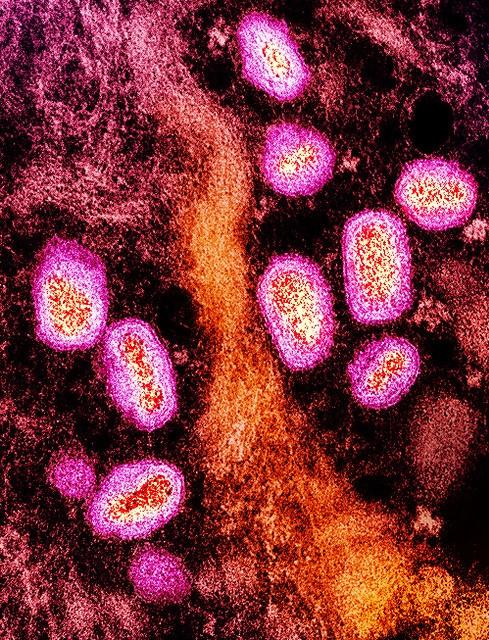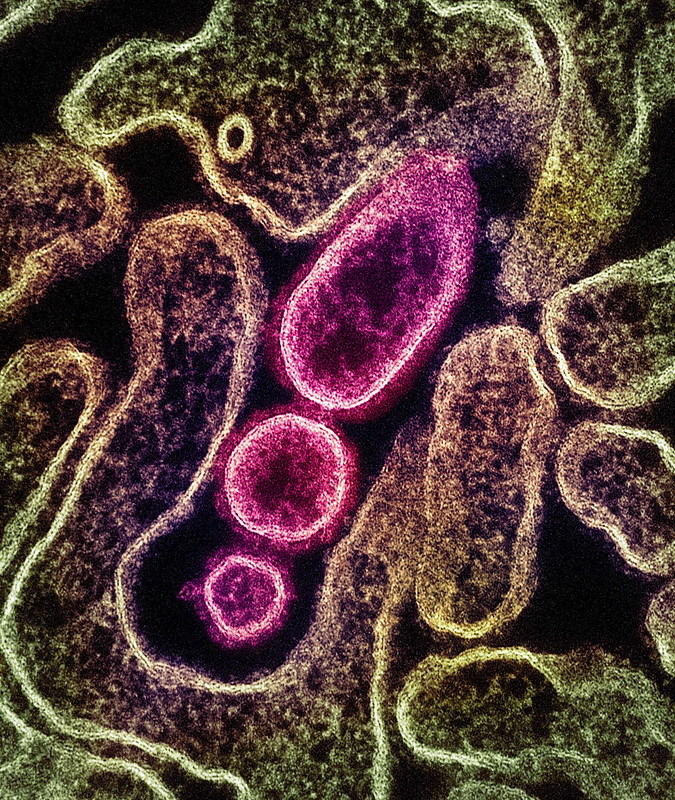
A University of Washington analysis reveals that mpox spread in North America started to slow down before 10% of high-risk people in the United States were vaccinated, suggesting that behavior change helped end the 2022 outbreaks.
For the study, published yesterday in Cell, investigators built models to analyze global and regional transmission dynamics using mpox virus genomes from five global regions, as well as air traffic and epidemiologic data.
The multicountry mpox outbreaks, which occurred mainly among men who have sex with men (MSM), were unusual in that they occurred in non-endemic regions. In July 2022, the World Health Organization declared the primarily sexually transmitted infection a public health emergency of international concern.
Surveillance, behavior change may have been sufficient
In the 2022 epidemic, mpox was first detected in the United Kingdom on May 7, followed by rapid transmission around the world. Most cases were initially reported in Western and Southern, and then Central Europe, peaking in mid-July. Genetic sequences traced the most common viral ancestor of the epidemic to Western Europe from March 9 to 27.
In North America, cases were first reported in mid-May, ultimately leading to the largest outbreak in the world and peaking in early August. Cases were first detected in South America in mid-May, making up a large proportion of cases at the end of the epidemic.
These findings highlight the significant effect of behavioral change among MSM in curbing the epidemic as well as emphasize the need for prompt public health response in order to maximize the population-level effectiveness of vaccination campaigns.
Genetic sequences from submitted samples showed diversity among regions and in North America. Disease transmission in North America started to drop before more than 10% of high-risk Americans were vaccinated. The authors found strong evidence of viral circulation before initial case detection in each affected world region.
"These findings highlight the significant effect of behavioral change among MSM in curbing the epidemic as well as emphasize the need for prompt public health response in order to maximize the population-level effectiveness of vaccination campaigns," the researchers wrote.
The results, they said, underscore the importance of routine specimen screening for emerging infectious diseases and of mining genomic and epidemiologic data for outbreak mitigation.












